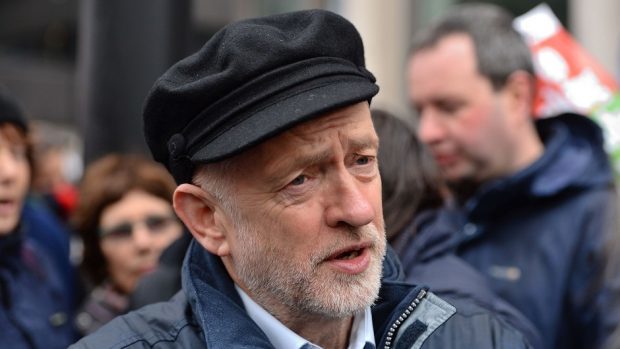David Cameron and Jeremy Corbyn were locked in an 11th-hour battle last night to secure support for their competing stances on air strikes in Syria.
The prime minister urged MPs of all colours to back his call for extending action against Islamic State, while the defiant Labour leader appealed to his shadow cabinet colleagues in favour of intervention to “think again”.
Threats of recrimination also surfaced, with shadow energy minister Clive Lewis – a close ally of Mr Corbyn – warning those MPs who opt to vote with the Tories: “On their heads be it”.
Commentators are predicting things will go the way of Mr Cameron, who has the unanimous backing of his Cabinet, after Mr Corbyn granted his MPs a free vote.
It is understood around 50 could be prepared to back military action, which would offset Tory rebels and ensure the “clear majority” the prime minister has insisted he is seeking.
But the Labour leader indicated an increasing number of his MPs were becoming sceptical about the proposal.
He said he was “confident” he had the support of a “very large” proportion of party members, although he accepted there was a small number who were “diehard” in backing action.
Meanwhile, it emerged a group of senior cross-party MPs have tabled an amendment in an effort to derail Mr Cameron’s plans.
Spearheaded by SNP Westminster leader Angus Robertson and Tory MP John Baron, it argues he has failed to make the case for war.
Mr Corbyn also scorned the “mythical” 70,000-strong Free Syrian Army highlighted by Mr Cameron last week as the force that – alongside Kurdish fighters – would form the troops on the ground.
And yesterday Defence Secretary Michael Fallon acknowledged the moderate opposition fighters did not represent a coherent group that could be deployed against IS.
The Tory frontbencher told the Commons defence committee in the “fullness of time” they could take the fight to the terrorists on the ground.
He also said Britain’s involvement in air strikes would help preserve the Syrian opposition and prevent them being squeezed by both IS and forces loyal to the Assad regime.
Committee chairman Conservative MP Julian Lewis voiced concern that some of the fighters the government had included in its estimate are Islamists rather than moderates.
In response, Mr Fallon said he would reflect on whether more details of the groups could be released.
Deputy Labour leader Tom Watson also challenged the claim, writing to the PM to ask for more explanation as to where the moderate fighters were and how they could be deployed.
He has indicated his support for action, but warned there was still no “broad consensus” among MPs and urged the prime minister not to take it for granted.
If parliament gives the go-ahead, British strikes – potentially involving planes from Lossiemouth – could be launched within days, if not hours.
Mr Fallon confirmed that the eight Tornado GR4s stationed at RAF Akrotiri on Cyprus would be deployed to the region as well as more RAF war planes.
The motion MPs will vote on covers 12 key points, including the legal basis for military action, reference to the UN resolution calling on states to take “all necessary measures” to prevent IS terror, and a commitment to a wider strategy.
It makes clear strikes will only be targeted at IS and rules out British boots on the ground in line with the PM’s statement to the Commons last week.
Their discussion is expected to last almost 12 hours after the day’s existing business is cleared.
Commons speaker John Bercow has insisted he would be willing to “sit up all night”.
Scottish First Minister Nicola Sturgeon reiterated the SNP’s opposition to air strikes yesterday, defending the decision not to give MPs a free vote.
She said it was “incumbent” on political parties to take a stance the public understands.
